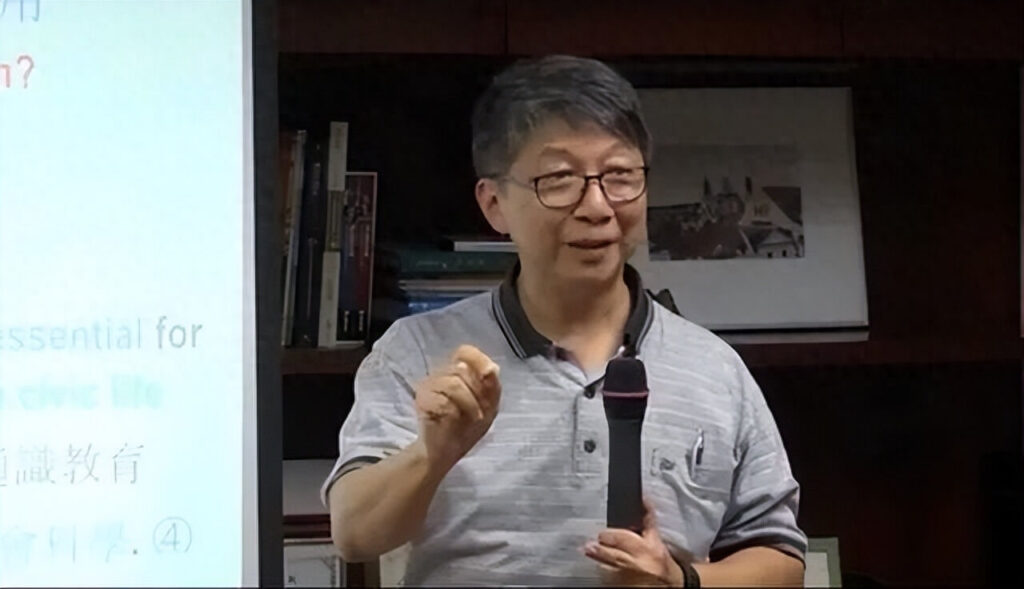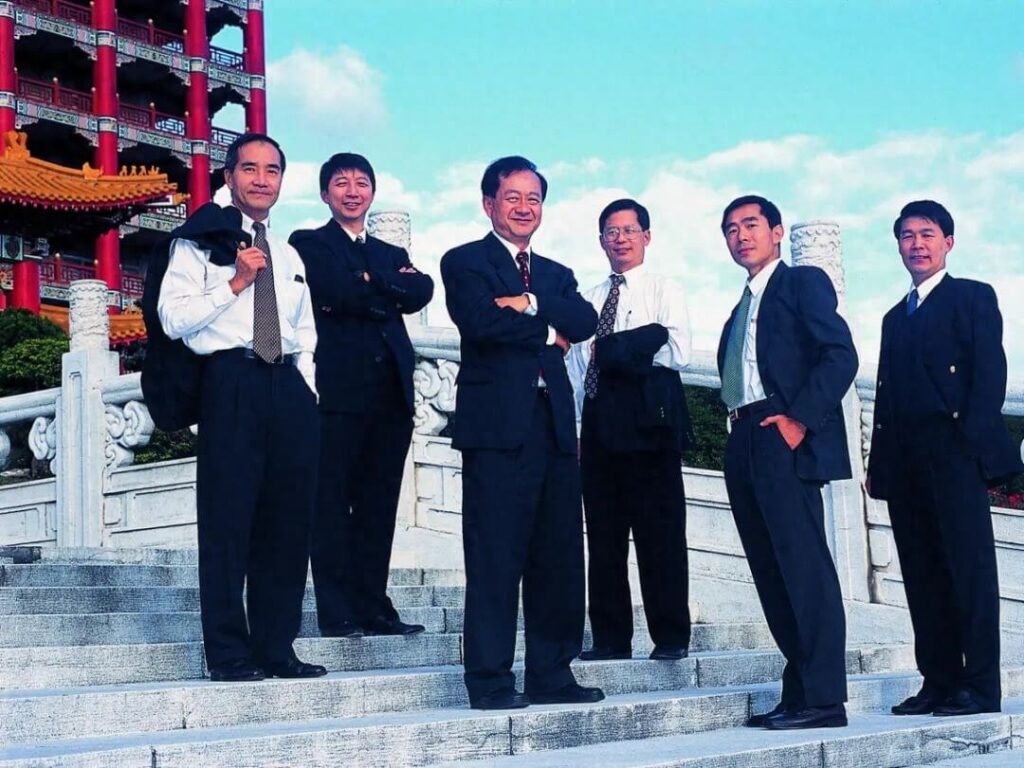On June 25, Taiwan’s National Science Council’s “Science, Democracy, and Society Research Center (DSET)” held the annual forum “Taiwan under Technological Geopolitics,” inviting Yang Rui-lin, Director of Research at the Taiwan Institute of International Studies; Cao Shi-lun, Global Marketing Director and Taiwan Director of the International Semiconductor Industry Association (SEMI); Yang Guang-lei, Visiting Professor at the College of Key Technologies of National Taiwan University (former Director of R&D at TSMC); and Xu Zun-ci, Director of the Taiwan-Southeast Asia Association Research Center of the Chung-Hua Institution for Economic Research, to discuss Taiwan’s semiconductor industry and economic security under technological geopolitics.
Yang Guang-lei reviewed the development of the global semiconductor industry, stating that the United States was the originator of semiconductors, with Moore’s Law aiding its early development, making Intel the global semiconductor leader for a long time as the world amassed resources following Moore’s Law.
However, “Moore’s Law has been both a blessing and a curse.” Yang said Moore’s Law promoted industrial division, dismantling the Integrated Device Manufacturing (IDM) model, and pushing semiconductor manufacturing towards the East, as manufacturing clashed with American innovation culture, an inevitable trend of the times.
In the 1980s, the US semiconductor industry was overtaken by Japan, which at its peak, captured 50% of the global semiconductor market. Unable to tolerate being replaced, the US enacted policies leading Japan into the “Lost 30 Years,” causing not only a decline in the semiconductor industry but also a talent gap.

Yang explained that TSMC chose the less-favored wafer foundry field initially because it had no competition, allowing it to grow from a small enterprise to the world’s leading wafer foundry company. In the 1990s, Taiwan’s stock dividend system attracted a wave of returning overseas talent, and the Industrial Technology Research Institute nurtured local talent, promoting the rapid development of the semiconductor industry. The recent global supply chain disruptions due to the COVID-19 pandemic highlighted the importance of Taiwan’s semiconductor industry.
He pointed out that Taiwan’s semiconductor industry is mainly focused on logic wafer manufacturing, with memory chip manufacturing primarily in Japan and South Korea, and the upstream semiconductor equipment sector still dominated by Europe and the US, given their 40-year development lead. China faces significant challenges due to US restrictions and might encounter decades of difficulties.
“Geopolitics poses both negative obstructions and positive aids to Taiwan’s semiconductor industry,” Yang said, noting that the main risk comes from the US, which seeks to reduce the risk of semiconductor manufacturing being concentrated in Asia, thus compelling TSMC to manufacture in the US. Recently, there have been reports urging TSMC to conduct R&D in the US, which is not beneficial for Taiwan.
Yang further mentioned that globalization is dead, and Taiwan must face this reality, maintaining its existing competitiveness and continuing to develop while overcoming unnecessary restrictions. US manufacturing could lead to cost increases, so solutions to mitigate this are necessary. The US excels in forward-looking research, and collaboration in this area could be beneficial. It’s important to avoid conflicts with the US to prevent mutual harm and engage in intelligent dialogue.

Yang Rui-lin also commented that ongoing geopolitical factors are a constant concern, raising questions about how long Taiwan’s semiconductor industry can maintain its competitiveness. TSMC is expected to mass-produce the 2nm process next year, and it is estimated that before the 9-angstrom process technology, TSMC and Taiwan’s semiconductor industry will maintain a leading position until around 2032.
From a global perspective, Yang Guang-lei sees opportunities in non-US regions like Europe and Japan. As for mainland China, despite limitations in semiconductor development, its vast market cannot be ignored. Taiwan should ally with other countries without affecting its competitiveness.
Yang emphasized that Taiwan is not without challenges, particularly the low birthrate crisis, which requires productivity enhancement. Additionally, there should be a balance sought in energy and environmental issues.
Cao Shi-lun also remarked that the whole world aims to develop semiconductors. However, some countries are in competition with Taiwan, so Taiwan’s semiconductor plants need a grand strategy for international deployment and cooperation, considering whether to adopt proactive or reactive strategies.
Xu Zun-ci stressed that Taiwan has a complete semiconductor ecosystem that should remain local. Facing geopolitical challenges requires a higher level of strategy and cross-industry cooperation to devise countermeasures.
Yang Rui-lin believes, “Mainland China will also strive to achieve breakthroughs and become self-sufficient.” Taiwan should cooperate internationally and, in the process, strengthen R&D security by incorporating relevant safety mechanisms into the ecosystem.
Regarding subsidy policies, Yang Guang-lei stated that subsidies are the worst investment because one-time subsidies are insufficient and yield poor investment returns. The best investment is in forward-looking research, and he believes Taiwan should not provide redundant subsidies to the semiconductor industry.
Related:
- 2024 CoWoS Milestone: 45,000 Wafers per Month
- STMicro Powers Industry Growth with 8 Inch SiC Push
- BBC Probes TSMC U.S. Facility and Hidden Issues

Disclaimer: This article is created by the original author. The content of the article represents their personal opinions. Our reposting is for sharing and discussion purposes only and does not imply our endorsement or agreement. If you have any objections, please get in touch with us through the provided channels.







